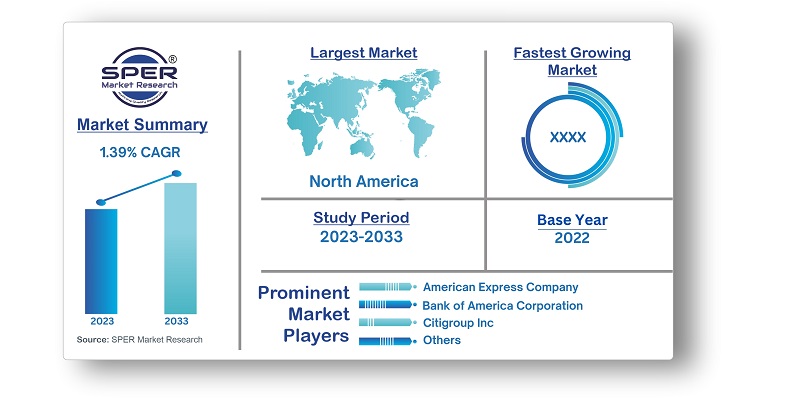
Debit Card Market Growth, Size, Trends, Share, Revenue, Competition and Future Outlook
Global Debit Card Market Size- By Card Type, By Service Provider, By Application- Regional Outlook, Competitive Strategies and Segment Forecast to 2033
| Published: Dec-2023 | Report ID: IACT23205 | Pages: 1 - 225 | Formats*: |
| Category : Information & Communications Technology | |||
- 2020: MasterCard, a financial services company based in the United States, paid an undisclosed sum for Ethoca Limited, a fintech company. The acquisition is expected to facilitate collaboration between merchants and card issuers in detecting and resolving fraud in digital commerce.
- 2019: According to a bulletin issued by the Bank for International Settlements, an advisor to central banks around the world, the pandemic would help gain momentum for cashless payments around the world.


| Report Metric | Details |
| Market size available for years | 2019-2033 |
| Base year considered | 2022 |
| Forecast period | 2023-2033 |
| Segments covered | By Card Type, By Service Provider, By Application |
| Regions covered | North America, Asia-Pacific, Latin America, Middle East & Africa and Europe |
| Companies Covered | American Express Company, Bank of America Corporation, Citigroup Inc., HDFC Bank ltd., JP Morgan Chase and Co., MasterCard, PayPal Holdings Inc., PayU, State Bank Of India, US Bank. |
- Consumers in Emerging Markets
- Government Programs and Social Benefits Recipients
- Frequent Travelers
- Online Shoppers
- Small and Medium-sized Enterprises (SMEs)
- Unbanked and Underbanked Individuals
- Tech-Savvy Consumers
- Young Adults and Students
- Others
| By Card Type: |
|
| By Service Provider: |
|
| By Application: |
|
- Global Debit Card Market Size (FY’2023-FY’2033)
- Overview of Global Debit Card Market
- Segmentation of Global Debit Card Market By Card Type (Classic, Gold, Platinum, Signature)
- Segmentation of Global Debit Card Market By Service Provider (MasterCard, Rupay, Visa, Other Service Provider.)
- Segmentation of Global Debit Card Market By Application (Bank, Commercial, Shopping, Other Application.)
- Statistical Snap of Global Debit Card Market
- Expansion Analysis of Global Debit Card Market
- Problems and Obstacles in Global Debit Card Market
- Competitive Landscape in the Global Debit Card Market
- Impact of COVID-19 and Demonetization on Global Debit Card Market
- Details on Current Investment in Global Debit Card Market
- Competitive Analysis of Global Debit Card Market
- Prominent Players in the Global Debit Card Market
- SWOT Analysis of Global Debit Card Market
- Global Debit Card Market Future Outlook and Projections (FY’2023-FY’2033)
- Recommendations from Analyst
1.1. Scope of the report1.2. Market segment analysis
2.1. Research data source
2.1.1. Secondary Data2.1.2. Primary Data2.1.3. SPER’s internal database2.1.4. Premium insight from KOL’s
2.2. Market size estimation
2.2.1. Top-down and Bottom-up approach
2.3. Data triangulation
4.1. Driver, Restraint, Opportunity and Challenges analysis
4.1.1. Drivers4.1.2. Restraints4.1.3. Opportunities4.1.4. Challenges
4.2. COVID-19 Impacts of the Global Debit Card Market
5.1. SWOT Analysis
5.1.1. Strengths5.1.2. Weaknesses5.1.3. Opportunities5.1.4. Threats
5.2. PESTEL Analysis
5.2.1. Political Landscape5.2.2. Economic Landscape5.2.3. Social Landscape5.2.4. Technological Landscape5.2.5. Environmental Landscape5.2.6. Legal Landscape
5.3. PORTER’s Five Forces
5.3.1. Bargaining power of suppliers5.3.2. Bargaining power of buyers5.3.3. Threat of Substitute5.3.4. Threat of new entrant5.3.5. Competitive rivalry
5.4. Heat Map Analysis
6.1. Global Debit Card Market Manufacturing Base Distribution, Sales Area, Product Type6.2. Mergers & Acquisitions, Partnerships, Product Launch, and Collaboration in Global Debit Card Market
7.1. Global Debit Card Market Value Share and Forecast, By Card Type, 2023-20337.2. Classic7.3. Signature7.4. Platinum7.5. Gold
8.1. Global Debit Card Market Value Share and Forecast, By Service Provider, 2023-20338.2. MasterCard8.3. Rupay8.4. Visa8.5. Other Service Providers
9.1. Global Debit Card Market Value Share and Forecast, By Application, 2023-20339.2. Bank9.3. Commercial9.4. Shopping9.5. Other Application
10.1.Global Debit Card Market Size and Market Share
11.1. Global Debit Card Market Size and Market Share By Card Type (2019-2026)11.2. Global Debit Card Market Size and Market Share By Card Type (2027-2033)
12.1. Global Debit Card Market Size and Market Share By Service Provider (2019-2026)12.2. Global Debit Card Market Size and Market Share By Service Provider(2027-2033)
13.1. Global Debit Card Market Size and Market Share By Application (2019-2026)13.2. Global Debit Card Market Size and Market Share By Application (2027-2033)
14.1. Global Debit Card Market Size and Market Share By Region (2019-2026)14.2. Global Debit Card Market Size and Market Share By Region (2027-2033)
14.3. Asia-Pacific
14.3.1. Australia14.3.2. China14.3.3. India14.3.4. Japan14.3.5. South Korea14.3.6. Rest of Asia-Pacific
14.4. Europe
14.4.1. France14.4.2. Germany14.4.3. Italy14.4.4. Spain14.4.5. United Kingdom14.4.6. Rest of Europe
14.5. Middle East and Africa
14.5.1. Kingdom of Saudi Arabia14.5.2. United Arab Emirates14.5.3. Rest of Middle East & Africa
14.6. North America
14.6.1. Canada14.6.2. Mexico
14.6.3. United States
14.7. Latin America
14.7.1. Argentina14.7.2. Brazil14.7.3. Rest of Latin America
15.1. American Express Company
15.1.1. Company details15.1.2. Financial outlook15.1.3. Product summary15.1.4. Recent developments
15.2. Bank Of America Corporation
15.2.1. Company details15.2.2. Financial outlook15.2.3. Product summary15.2.4. Recent developments
15.3. Citigroup Inc.
15.3.1. Company details15.3.2. Financial outlook15.3.3. Product summary15.3.4. Recent developments
15.4. HDFC Bank Ltd.
15.4.1. Company details15.4.2. Financial outlook15.4.3. Product summary15.4.4. Recent developments
15.5. JPMorgan Chase And Co.
15.5.1. Company details15.5.2. Financial outlook15.5.3. Product summary15.5.4. Recent developments
15.6. MasterCard
15.6.1. Company details15.6.2. Financial outlook15.6.3. Product summary
15.6.4. Recent developments
15.7. PayPal Holdings Inc.
15.7.1. Company details15.7.2. Financial outlook15.7.3. Product summary15.7.4. Recent developments
15.8. PayU
15.8.1. Company details15.8.2. Financial outlook15.8.3. Product summary15.8.4. Recent developments
15.9. State Bank Of India
15.9.1. Company details15.9.2. Financial outlook15.9.3. Product summary15.9.4. Recent developments
15.10. US Bank
15.10.1. Company details15.10.2. Financial outlook15.10.3. Product summary15.10.4. Recent developments
15.11. Others
SPER Market Research’s methodology uses great emphasis on primary research to ensure that the market intelligence insights are up to date, reliable and accurate. Primary interviews are done with players involved in each phase of a supply chain to analyze the market forecasting. The secondary research method is used to help you fully understand how the future markets and the spending patterns look likes.
The report is based on in-depth qualitative and quantitative analysis of the Product Market. The quantitative analysis involves the application of various projection and sampling techniques. The qualitative analysis involves primary interviews, surveys, and vendor briefings. The data gathered as a result of these processes are validated through experts opinion. Our research methodology entails an ideal mixture of primary and secondary initiatives.



Frequently Asked Questions About This Report
PLACE AN ORDER
Year End Discount
Sample Report
Pre-Purchase Inquiry
NEED CUSTOMIZATION?
Request CustomizationCALL OR EMAIL US
100% Secure Payment






Related Reports
Our Global Clients
Our data-driven insights have influenced the strategy of 200+ reputed companies across the globe.




















